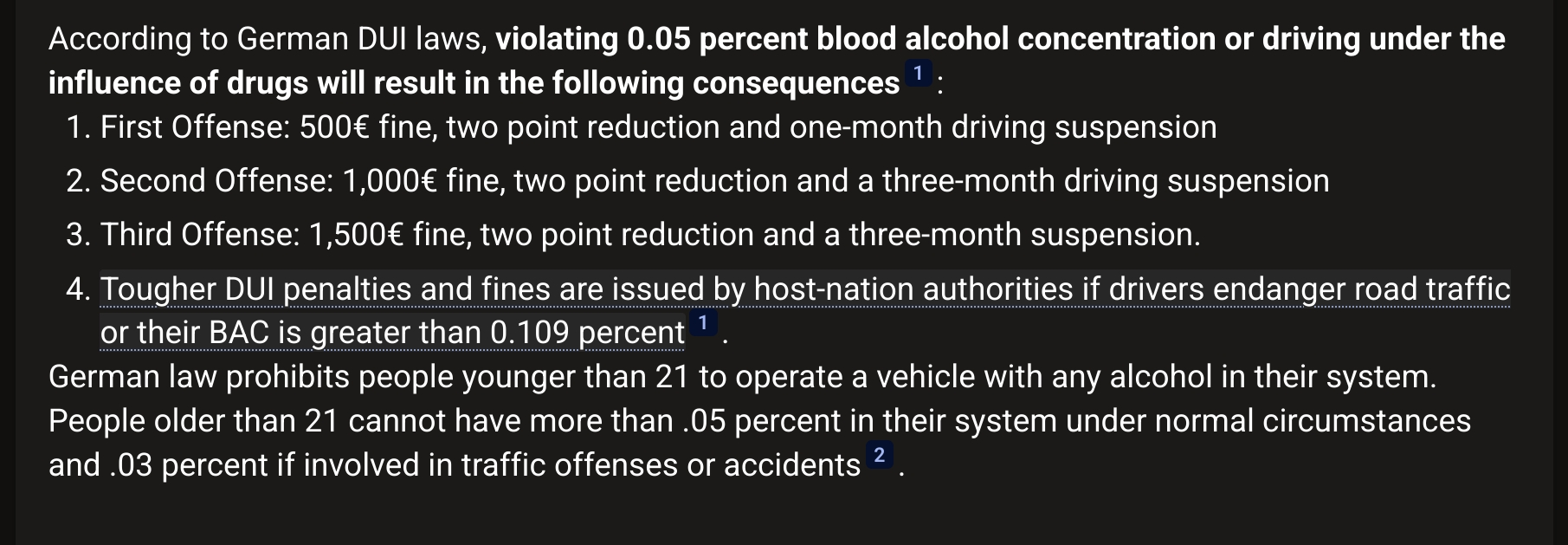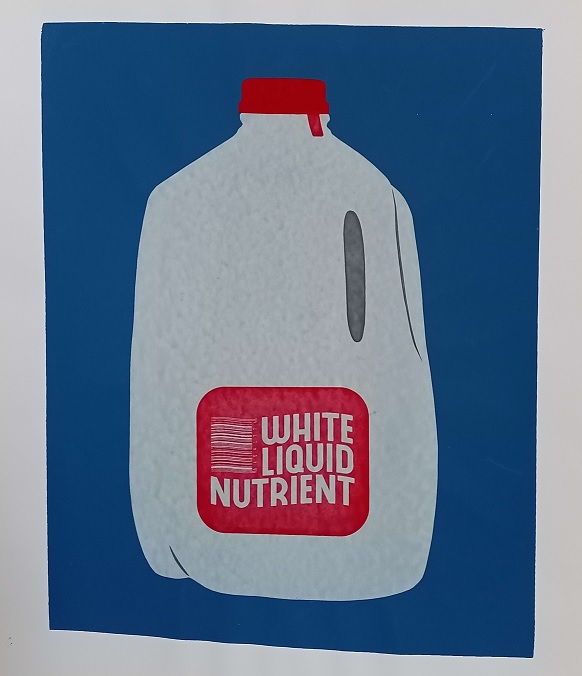rt, will you ban it?
Just removing subsidies on corn would solve the core problem. There are lots of things corn is used for that shouldn’t be corn that also get fixed by that.
This is the answer. High fructose corn syrup is over-used because it’s dirt cheap to produce, and it’s only dirt cheap to produce because corn is subsidized.
As much as I love my bourbon whiskey, I’ll accept the fact that prices will go up if corn stops being subsidized, but that’s what’s desperately needed in this country.
Came here to say this. HFCS is used so much because it’s so cheap for companies to use it. Get rid of the corn subsides, which have long outlived their purpose, and there’s not much incentive for using HFCS anymore and you solve the problem without a ban.
Pet food
The downside of HFCS isn’t the syrup itself, but the fact that it is so cheap and is easily able to be added to make things taste “better” for basically no cost.
I would end the corn subsidies in America. They make bank anyway
The public perception got murdered with the name… Should have called it something like Sucrose type Corn Syrup.
When people hear High Fructose Corn Syrup, they usually stop listening at the word “High” if you’re luck, maybe Fructose, but never the full term. The term isn’t comparing it to other sources of Fructose, but just simply to regular Corn syrup, which is almost 100% glucose. HFCS just turns some of the glucose to fructose to make something equivalent to sucrose.
Sugar is unhealthy, but it doesn’t really matter where it comes from.
No, because just banning things rarely achieves the desired results.
And whether it’s cane sugar or high fructose corn syrup, too much sugar in general is the problem, much more so than the subtle differences between the two.
Instead, tax it enough. And maybe do that with sugar/fat/etc in general, so that inherently sweeter and fattier foods can’t be sold as cheap. It works in some countries already.
Maybe. A possibility for sure. I’m just not really into policies of trying to save people from themselves.
For me? I do what I can by just avoiding it as much as I can.
No man is an island and policies that aim to better the nation’s health are rarely for the benefit of the individual and rather are a way to benefit the masses by increasing productivity in the labor market, reducing healthcare costs, and generally making the nation more competitive on the international stage
Right and I get that, and I’m not saying that’s a bad idea, but again I just get a really bad taste in my mouth for policies that aim to save people from themselves. It just feels like the government being a parent instead of a service of the people. Secondly, it doesn’t really fix the root of the problem, which doesn’t always have to be the goal in policies obviously, but reluctantly making people make decisions with higher prices. Where should the government stop then in using higher taxes to get us to do what it wants?
Again, I’m torn on this because it may be the correct thing to do to cut down sugar consumption, but I hate the precedent it creates.
From a practical perspective, cane sugar just tastes better.
That is true
Not ban. No.
However, I would tax it at exactly the same rate as the corn and farm subsidies lower its cost, to make its actual price reflect reality.
deleted by creator
To be honest it and most unhealthy foods should be taxed to make healthy foods really cheap.
No, why would I? I’d end the US corn subsidies for basic economics reasons, and it would become less of a thing as a result, but it’s not a bad technology itself.
Let’s just tax it. Last time I’ve looked (a while ago) HFCS was at about $400/t. Just add a tax of $800/t that solely goes to programs fighting obesity.
No, because, it does not fix the root problem.
Also, banning things isn’t the way to fix things.
I would also be a hypocrite for changing to legalize pot, while also chanting to ban corn-based sugars.
They enacted a ban on plastic grocery bags here two years ago to eliminate all the extras being blown across fields. Didn’t help, I still see them blowing down the streets, and lots of people re-using their bags because they’re so much more convenient (plus a lot of people would rather just pay the small tax to use the plastic bags). Who knows, maybe in twenty years all of the bags will be gone, but it’s been a huge hassle for everyone both as consumers and for the stores to re-work their checkout lines because it takes so much more time to use these bags.
We also have a nearby town where they started taxing people for sugary drinks like sodas. Last I heard, it hasn’t changed the amount of purchases by any noticeable amount. People just do their shopping in another town and local stores miss out on the profits.
I imagine for the high fructose, the same thing will happen. People will just pay the tax and not care. This really comes down to being just another tax on the poor which doesn’t have any affect on people who make more money. These bans are slowly taking away every option that poor people can afford, when if anyone really cared about changing people’s habits they would make healthier choices the same price or cheaper than the unhealthy ones. Since I make a decent wage, my wife and I tried eating healthy for a couple months. It nearly broke us because good foods cost so much more. I’m not talking about buying all organic, rather just trying to change the type of foods we ate. My wife did a ton of research to find things that we both thought sounded tasty, and they really were good, but we had no money left over to do anything fun so we spent the whole time sitting at home watching TV.
tl;dr – Real change comes from making healthy choices cheaper, NOT by making unhealthy choices more expensive.
Our city banned plastic bags, and it’s completely changed the city. Sure, there’s still plastic trash, but there’s virtually no plastic bags stuck in trees or blowing in the street. Noticed this over the past 8-10 years.
Yeah same, except it was later overturned where I live and they came right back. Luckily, at lesser numbers, because more of us were used to bringing our own by then.
Exactly my opinion, banning won’t solve the problem, and there can be valid uses for it. Best solution would be requiring a holistic approach to things, as in requiring proving that any substance used with harmful effects is the best choice in that particular use and that the use case is a valid use case in the first place for the society
No. It’s not quite harmful enough. If I banned that, I’d have to ban a lot of things if I wanted to keep a fairly consistent position.
Cigarettes would be the first I would consider.
But I probably wouldn’t outright ban any of it.
I’m fairly certain cigarette usage is at historic lows. However, we could go after DUIs a lot more aggressively by bolstering public transit and then applying a much more German-style approach to DUIs.

I think we just need a way to incentivize corporations to provide healthy alternatives as well (and not just HFCS, but high sugars in general, etc). Not sure of the best approach, but the bigger issue is that when every corporation is pushing cheap sellers that are addictive, its no wonder most people eat them. Like, McDonalds alone isn’t responsible, but corporations in general because their basically saying they can’t be held responsible for being successful. But they’re putting so much money into being successful and trying to be successful, that it’s difficult when you have such large entities pushing that way but then saying “it’s not our fault people are going in the direction we push”
Removed by mod
I mean, if we’re talking about impossible things, changing the world economic structure is one of them.
You can’t socialize food production without socializing the entire economy of the world. Many countries rely on food production as their number one source of income. So you can’t just socialize one industry. Let alone getting the world to play along.
An incentive could be “offer healthy alternatives otherwise something bad will happen.” It requires meddling with the system and ignoring the free market, but sounds like I don’t think you’d disagree with disruption in the free market.
Removed by mod
That’s not the way any of this works. You can’t just change a portion of the system. The US imports a ton of food. Banning something is actually a realistic ability. Ingredients have been banned before. Creati ng a system that is doomed to failure due to not thinking about it for 3 seconds is a different class of ability. We’re talking about changing the laws of a country, not breaking the laws of math and physics. I’m pro-socialism but this is an awfully thought out take. It would cause worldwide economic collapse and less to starvation around the world due to such an event.
Removed by mod
No, you can change parts of it, but you can’t just arbitrarily say any part can simply be replaced willy nilly. That’s just childish. Changes have impact and consequences. You’re literally ignoring cause and effect. I can see nothing is worth discussing with you though if you’re going to respond with something a child would say. So we’re done here.
Removed by mod
As someone with fructose intolerance, yeah I would as it gives me diarrhea.
I wouldn’t ban it but I would ban subsidized corn. The thing is, humans want a sweetener and sugar is just as bad if not worse. Actually the history of sugar is worse then the history of any drug or evil empire. More humans have suffered because of sugar that anything else ever created by man.
I feel like landmines and rape and staphylococcus (and drug resistant variants after that) could give sugar a run for its money if we are talking about the worst things of all time xD
If you want to see for yourself the absolute horror that is sugar, i suggest this CBC documentary
Here is an alternative Piped link(s): https://piped.video/K3ksKkCOgTw
Piped is a privacy-respecting open-source alternative frontend to YouTube.
I’m open-source, check me out at GitHub.
Thanks, I’ll have to check it out!
Nope
It can stay but I’d like to restrict the packaging size of highly processed food and food that’s otherwise extremely unhealthy.
For example breakfast cereal. Wtf? How does that even exist? Why was I allowed to eat a fucking bowl of that in the morning as a child?Because being poor takes all your time. It’s way quicker to let everyone get a bowl of cereal versus making food for an hour to find that nobody ate half their plate anyway.
We weren’t poor I just annoyed my poor mom to get me cereals because of the toys.
We weren’t poor I just annoyed my poor mom to get me cereals because of the toys.
Old and lower class* then lol.
Old is correct.
You’d actually create laws to limit people selling food because it’s too sugary for your taste? Jesus, I hope you’re not American… That sounds insane to me.
https://en.m.wikipedia.org/wiki/Sugary_drinks_portion_cap_rule
I was inspired by american lawmaking.
And it’s not only america that is discussing restrictions on unhealthy food.
https://notesfrompoland.com/2023/08/24/poland-bans-sale-of-energy-drinks-to-under-18s/
Btw, around 100k Americans die of diabetes. While smoking (which is restricted in various ways) kills 500k Americans this is the combined number of smoke related deaths diabetes is one of many food related health conditions.
I’m too lazy to format my links right now but as you see there are references that similar measures are taken in the US and internationally.
Btw, I never claimed you have to stop shoving whatever disgusting crap you consider edible into your food hole. You’re free to do whatever you want. I just suggested that you’d have to buy multiple portions instead of one so you might have the opportunity to reflect your gluttonous abuse of your own body as I do think producers are marketing their products in an unethical way.
I mean, not ban, but certainly restrict.
I’m amazed to see some people agree with banning it here… Like… Under what grounds? Because some people overeat? Jesus… What the hell?
Well, it’s not about overeating for one thing. The stuff is everywhere in American food. Assuming you’re in the States, you’ve probably consumed a lot more corn syrup than you think within the past year, and the stuff isn’t good for you. Here’s an article from the Cleveland Clinic about why it’s probably not the best thing to eat:
https://health.clevelandclinic.org/avoid-the-hidden-dangers-of-high-fructose-corn-syrup-video/
Now, as I initially said, I don’t know about banning it, but I kinda feel like warning labels are justified, and maybe some other restrictions.
Also… I live in Iowa, and frankly the corn subsidies that have helped cause the corn sweetener explosion are destroying the environment here. It’s a lot to get into, but corn production at this scale causes changes to weather patterns. It’s a lot.
So, I’d like to see corn subsidies ended, or at least reduced a lot. This would make corn sweetener more expensive and therefore a less attractive ingredient.

















